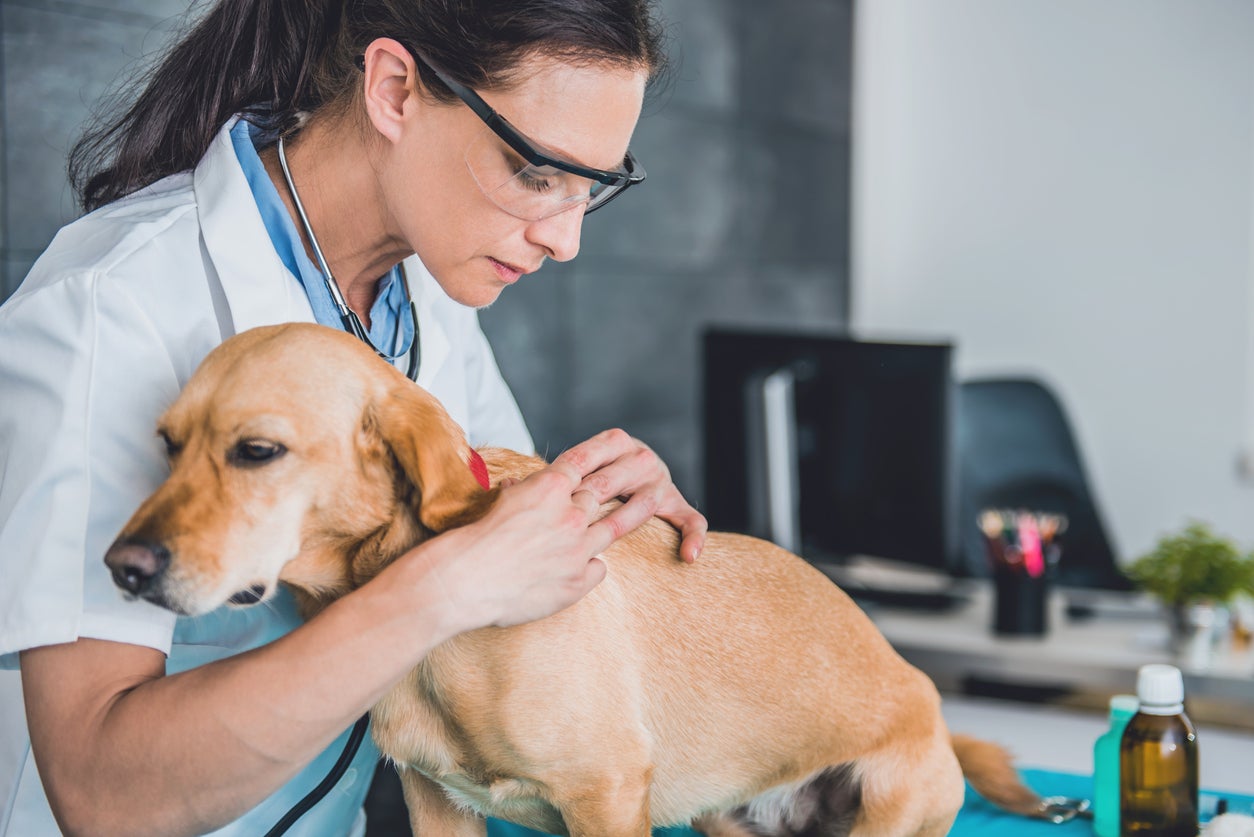The Independent's journalism is supported by our readers. When you purchase through links on our site, we may earn commission.
Dog genes could hold key to curing cancer, new research shows
Dogs and humans share 18 cancer mutation ‘hotspots’, Harvard study shows

Your support helps us to tell the story
From reproductive rights to climate change to Big Tech, The Independent is on the ground when the story is developing. Whether it's investigating the financials of Elon Musk's pro-Trump PAC or producing our latest documentary, 'The A Word', which shines a light on the American women fighting for reproductive rights, we know how important it is to parse out the facts from the messaging.
At such a critical moment in US history, we need reporters on the ground. Your donation allows us to keep sending journalists to speak to both sides of the story.
The Independent is trusted by Americans across the entire political spectrum. And unlike many other quality news outlets, we choose not to lock Americans out of our reporting and analysis with paywalls. We believe quality journalism should be available to everyone, paid for by those who can afford it.
Your support makes all the difference.Dogs could help cure cancer, research has revealed, as scientists found man’s best friend shares the same tumour-causing genes as humans.
Researchers compared tumours from almost 671 dogs from 96 breeds with 23 common tumour types to human patients.
Cancer occurs when cells in a specific part of the body grow and reproduce uncontrollably. The cancerous cells can invade and destroy surrounding healthy tissue, including organs.
Cancer sometimes begins in one part of the body before spreading to other areas in a process known as metastasis.
According to the NHS, half of all people will develop some form of cancer during their lifetime.
Researchers discovered dogs and humans share 18 mutation “hotspots” which are the likely cause of cancer. The similarities raise the possibility dogs could be used to test potential cancer-fighting drugs that may work on their tumours as well as on one affecting humans.
The study’s authors from MIT, Harvard and the University of Georgia said: “Canine tumours provide a powerful platform for translational investigation.”
Over the past decade, the study of cancer in dogs has highlighted similarities between canine and human tumours in lymphoma (blood), osteosarcoma (bone), hemangiosarcoma (blood vessels), melanoma (skin), and glioma (brain).

The most commonly mutated gene in human cancer is TP53, and this was detected in 22.5 per cent of canine tumours overall, according to the paper published in Scientific Reports.
According to Penn Medicine,TP53 mutations cause Li-Fraumeni syndrome when inherited, a disease that leaves people with a 90 per cent chance of developing cancer in their lifetime.
“These results demonstrate significant overlap in somatic hotspot mutations between human and canine cancers, further highlighting spontaneous canine cancers as an excellent model for the investigation of targeted therapies,” the study’s authors wrote.
Christina Lopes, a co-author of the study and the chief executive of One Health Company, said: “The results of this study show the incredible potential of combining canine cancer genomics and big data analysis to save lives on both ends of the leash.
“Human cancer research has been moving toward a genomics-based treatment paradigm for decades, but research on canine cancer genomics hasn’t kept up. This study filled in the last missing puzzle piece for comparative oncology.”



Join our commenting forum
Join thought-provoking conversations, follow other Independent readers and see their replies
Comments